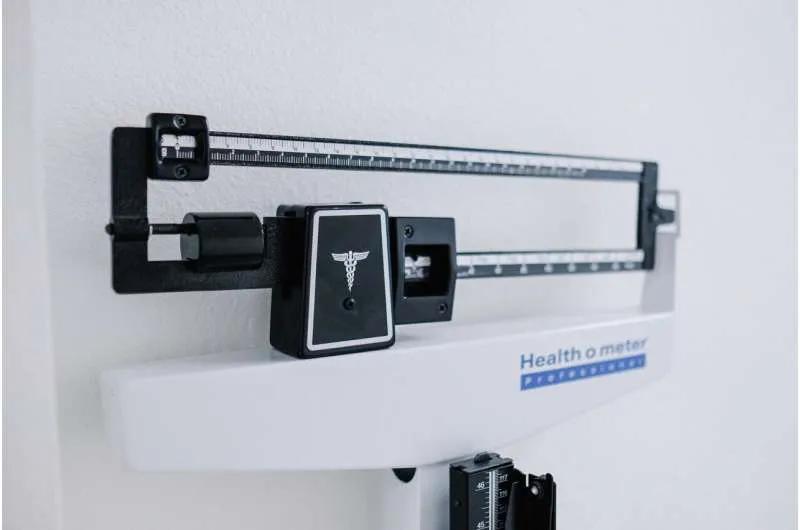Modern Health’s peer-reviewed study on the global mental health crisis sheds light on a pressing issue that has long been overlooked: therapy, while essential, is not enough to address the scale of the mental health challenges facing individuals worldwide. As mental health disorders continue to rise globally, there is an urgent need for a more comprehensive and multifaceted approach to mental health care, especially in light of the growing demand for accessible and effective services.
The Global Mental Health Crisis: A Growing Concern
The prevalence of mental health conditions is staggering, with nearly one in four people affected by mental illness at some point in their lives. Issues such as anxiety, depression, and stress-related disorders have become commonplace, exacerbated by factors like the COVID-19 pandemic, economic instability, and rising social isolation. According to the World Health Organization (WHO), depression is now the leading cause of disability worldwide, and suicide rates have also seen a significant increase in recent years.
The pandemic has only amplified these issues, with a sharp rise in mental health problems observed across all age groups, particularly among younger populations and healthcare workers. While therapy has long been considered the gold standard in treating mental health conditions, the sheer volume of people requiring support, combined with issues of accessibility, affordability, and stigma, has highlighted that therapy alone is not enough to solve the problem.
The Need for a Multifaceted Approach to Mental Health Care
Modern Health’s study highlights that effective mental health care must go beyond traditional therapy to include a broader range of interventions. This includes evidence-based coaching, digital tools, self-help resources, and group support systems. Each of these components can play a critical role in managing mental health symptoms, supporting recovery, and improving overall well-being.
The study emphasizes the importance of what is known as the “stepped care model.” This model matches individuals to the appropriate level of care based on the severity of their symptoms. For individuals with mild to moderate symptoms, digital tools and coaching can be effective alternatives to therapy. These approaches are not only more accessible but also more scalable, allowing mental health services to reach a larger number of people.
Coaching: A Viable Alternative to Traditional Therapy
One of the most significant findings of Modern Health’s study is that mental health coaching can achieve outcomes similar to therapy, particularly for individuals with less severe conditions. Coaching focuses on setting personal goals, building coping strategies, and providing emotional support, all of which can significantly improve mental well-being. This approach helps individuals manage stress, anxiety, and depression without the need for traditional therapeutic interventions.
Evidence shows that mental health coaching, especially when delivered through digital platforms, is highly effective in providing immediate support. It can also serve as a first step toward more intensive treatment if necessary. By offering a less formal, less stigmatized alternative to therapy, coaching encourages individuals to seek help earlier in the process, which can lead to better long-term outcomes.
Digital Tools and Self-Help Resources: Expanding Accessibility
Another key component of Modern Health’s approach is the integration of digital tools and self-help resources. These resources include guided meditations, cognitive-behavioral therapy (CBT) exercises, and mindfulness practices. Digital tools provide users with the flexibility to manage their mental health on their own terms, at their own pace, and from the comfort of their homes. This makes mental health care far more accessible, particularly in areas with limited access to mental health professionals.
Studies have shown that digital mental health interventions can be just as effective as face-to-face therapy for many individuals. For example, self-guided CBT programs have been found to reduce symptoms of depression and anxiety in numerous studies. Furthermore, digital tools offer a degree of anonymity and privacy that can help reduce the stigma associated with seeking mental health care. For many individuals, the ability to access support discreetly and on-demand can be a significant motivator.
Group Support Systems: The Power of Community
In addition to individual interventions, Modern Health’s study emphasizes the value of group support systems, such as the company’s Circles program. These group psychoeducation and support sessions have been shown to provide individuals with a sense of community and belonging, which can be incredibly beneficial for mental health. Participants in these groups often report feeling less isolated and more empowered to manage their mental health challenges.
Peer support groups also provide an opportunity for individuals to share their experiences, learn from others, and receive guidance from mental health professionals in a more informal setting. This sense of connection can help individuals build resilience, develop coping strategies, and feel supported throughout their mental health journey.
Breaking Down Barriers: Stigma, Access, and Cost
One of the major challenges in addressing the global mental health crisis is overcoming the barriers that prevent individuals from seeking help. Stigma around mental health remains a significant issue, with many people feeling ashamed or embarrassed to talk about their struggles. This is particularly true in certain cultural contexts, where mental health issues are often seen as a sign of weakness or failure.
Cost and access are also major barriers. Therapy can be expensive, especially in countries without universal healthcare, and many people simply cannot afford to pay for regular sessions. Additionally, there are not enough mental health professionals to meet the demand, particularly in rural or underserved areas. As a result, many individuals go without the care they need, leading to a worsening of their symptoms.
Modern Health’s study highlights that by offering alternative, cost-effective options such as coaching, digital resources, and peer support groups, mental health care can be made more accessible to a broader population. These options help to bridge the gap for individuals who may not otherwise be able to afford or access traditional therapy.
A Holistic Model for Mental Health Care
The peer-reviewed study from Modern Health makes a compelling case for a more holistic approach to mental health care. While therapy remains a cornerstone of treatment for many, it cannot be relied upon as the sole solution to the global mental health crisis. By integrating coaching, digital tools, self-help resources, and group support systems, mental health services can be made more effective, accessible, and scalable.
This multifaceted approach is not just about treating symptoms but about empowering individuals to take control of their mental well-being. It encourages a shift from a reactive model of care, where individuals only seek help when their symptoms are severe, to a proactive model that focuses on prevention, early intervention, and ongoing support.
Looking to the Future: A More Inclusive Mental Health Landscape
The findings of Modern Health’s study are a call to action for mental health professionals, policymakers, and organizations worldwide. There is a need for a paradigm shift in how mental health care is delivered, with a greater emphasis on integration, accessibility, and early intervention. This approach will help ensure that mental health care is not only for those who can afford it but for everyone, regardless of their circumstances.
As the global mental health crisis continues to evolve, it is clear that no single solution will suffice. Instead, a comprehensive, holistic approach that includes a variety of therapeutic options is necessary to meet the needs of individuals worldwide. By embracing a range of mental health interventions, we can create a more inclusive and supportive mental health landscape, one that provides the tools, resources, and support individuals need to thrive in an increasingly complex and challenging world.
In conclusion, Modern Health’s study reinforces the importance of expanding the scope of mental health care beyond traditional therapy. By integrating alternative approaches like coaching, digital tools, and peer support systems, we can create a more accessible and effective mental health care system that is better equipped to address the global mental health crisis. With the right interventions in place, we can make meaningful strides toward a healthier, more resilient global population.






















